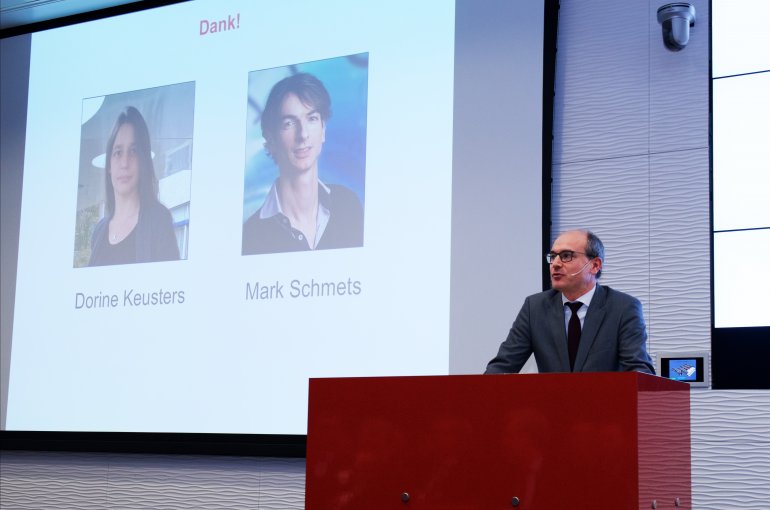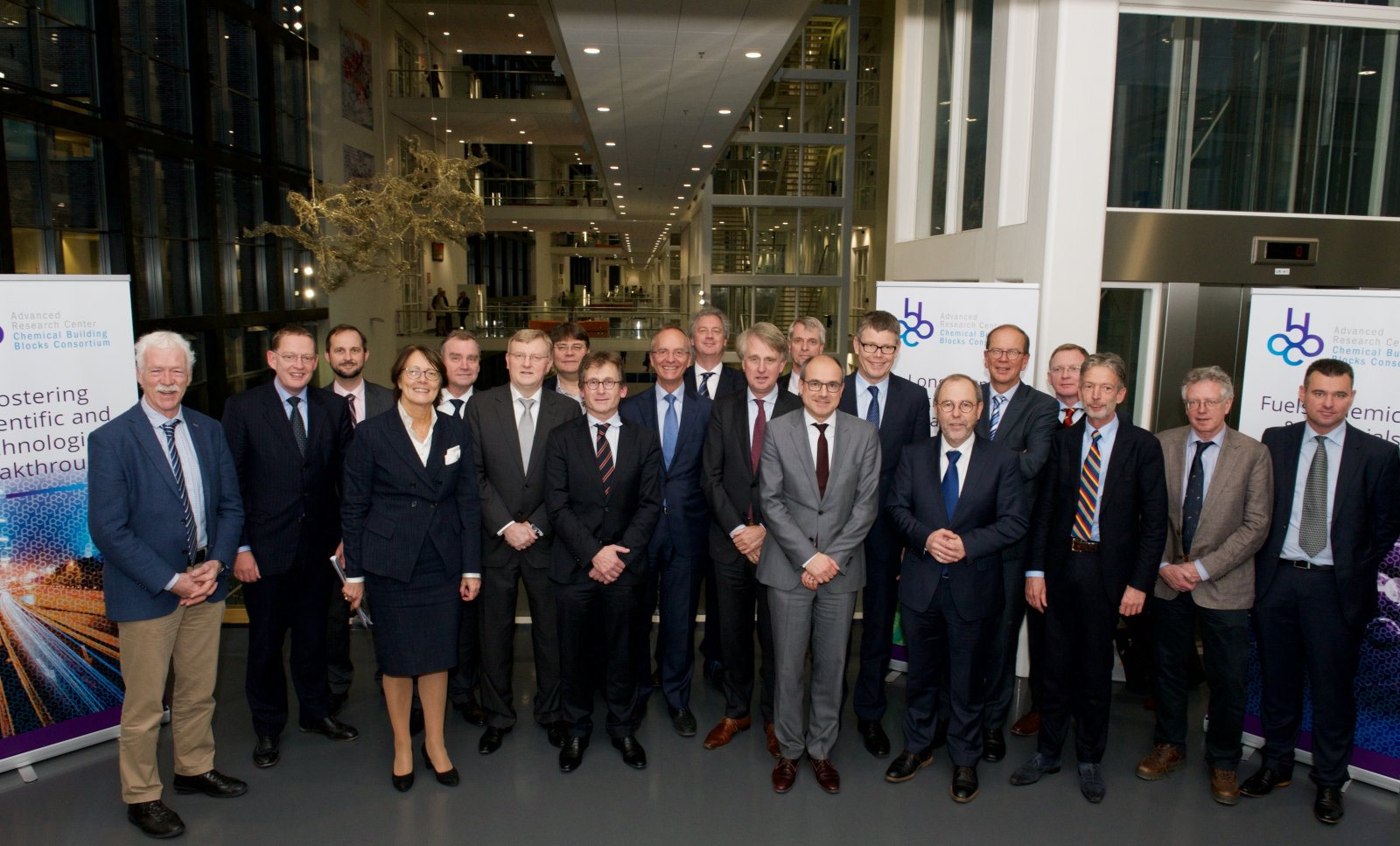National research centre for chemical building blocks begins construction
UU Professor Bert Weckhuysen co-founder

Early this week, the universities of Utrecht, Eindhoven and Groningen and their partners AkzoNobel, BASF, Shell, the Ministry of Economic Affairs, the Topsector Chemistry and NWO presented their plans for the foundation of the new Advanced Research Center Chemical Building Blocks Consortium (ARC CBBC) in the presence of Ministrer of Economic Affairs Henk Kamp. The neational research centre will deal with important energy- and chemistry-related issues pertaining to our increasing demand for finite natural resources. The partners will invest 11 million Euros per year for a period of 5-10 years, which should create 80 to 100 new jobs in the knowledge industry. Spinoza prize winner Prof. Bert Weckhuysen from Utrecht University was one of the founders of the project, together with Professor Ben Feringa from the University of Groningen. “With the CBBC, we hope to bring together top researchers and the industry to work together on major social issues over the medium- and long term”, explains Weckhuysen.
By connecting pioneering research with complex industrial issues, we can generate the breakthroughs necessary to supply the future demand for energy and materials in a sustainable manner. That is the conviction of Bert Weckhuysen, Professor of Anorganic Chemistry and Catalysis at Utrecht University. “In this new national virtual research centre, we aim to link fundamental research to applications and to translate scientific breakthroughs into new applications and products. Chemistry is the thing that all of these areas have in common.”
Attracting leading talent
The national research centre builds on the foundation laid by two Zwaartekracht programmes financed by the Ministry of Education, Culture and Science. Weckhuysen was the founder and Scientific Director of one of the two programmes; the Netherlands Center for Multiscale Catalytic Energy Conversion. With the ARC CBBC, the partners will contribute to a world-class infratructure for research and innovation in the Netherlands, which will attract leading talent from around the globe. The ARC CBBC focuses on the chemical building blocks for producting the energy carriers, coatings and materials of the future. “I believe that there is a big future for Chemistry. We are faced with major challenges as a society, and we know that we can only make a difference if we work together,” explains Marjan Oudeman, Chairperson of the Executive Board of Utrecht University during the meeting to announce the creation of the ARC CBBC.
Smog in Beijing
Weckhuysen: “Many issues on the National Science Agenda are direcly related to the ARC CBBC’s field of study. For example, we are trying to transition towards a more sustainable society by moving from fossil resources to biomass, and eventually to solar power in the future. But we will also work to turn CO2, which is currently a problem, into a solution. My children have seen the images of the smog in Beijing on TV. Can we solve that problem? I am convinced that we will have to find a way.”

Bert Weckhuysen
Bert Weckhuysen was appointed Professor of Anorganic Chemistry and Catalysis in Utrecht in 2000. His awards include the Spinoza Prize, the most prestigious scientific award in the Netherlands. In addition to being a member of the KNAW, he has been named a Fellow of the Royal Society of Chemistry in the United Kingdom and is one of a very small number of non-Americans to have been named a Fellow of the AAAS, the American Association for the Advancement of Science. In April 2015, Weckhuysen was presented with the royal honour of Knight in the Order of the Netherlands Lion. For more information about his work, see the press release nabout this award.
More information
- More information on Bert Weckhuysen on his personal webpage.
- Website of Zwaartekrachtprogramma Multiscale Catalytic Energy Conversion (MCEC).
- TEDx-talk by Bert Weckhuysen.
- Recente persberichten over zijn onderzoek:
Contact
Monica van der Garde, press officer Faculty of Science, m.vandergarde@uu.nl, +31 6 13 66 14 38.

